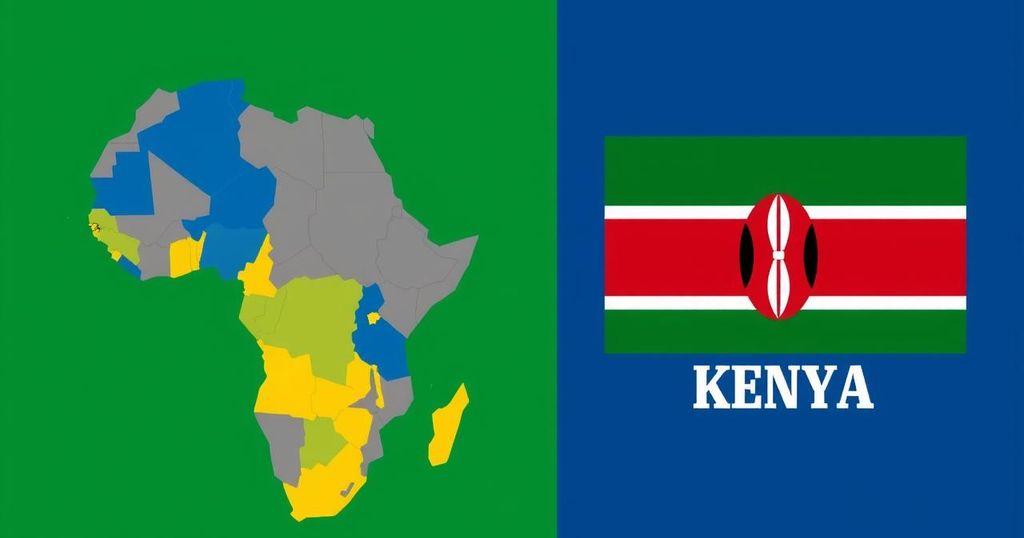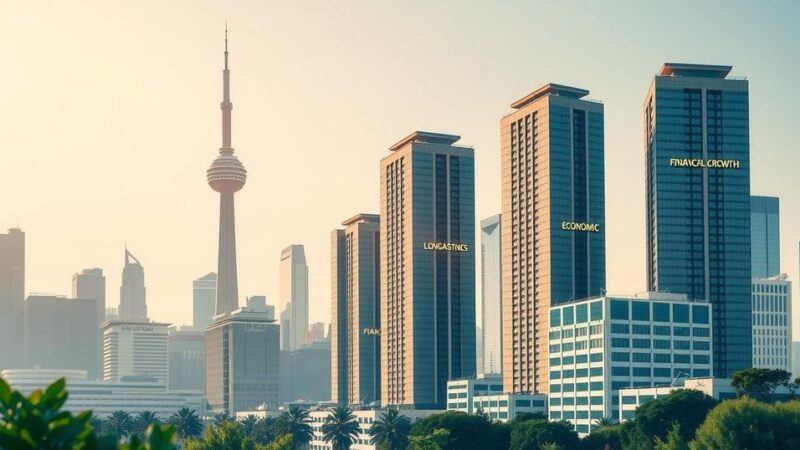Kenya and the Democratic Republic of Congo (DRC) have been identified as primary beneficiaries of recent IMF reforms, which enhance their access to concessional funding and alleviate debt servicing costs. The reforms increase the borrowing limit and provide more financial resources under the Poverty Reduction and Growth Trust, aiming to support low-income countries impacted by rising debt. Experts emphasize that while these changes are significantly beneficial, it is crucial for the funds to be allocated effectively to promote economic recovery and development.
Kenya and the Democratic Republic of Congo (DRC) have emerged as significant beneficiaries of recent reforms by the International Monetary Fund (IMF) and World Bank, designed to alleviate financial burdens on low-income nations. These changes, spurred by World Bank President Ajay Banga’s commitment during the organization’s annual meetings in Marrakesh, Morocco, aim to provide increased access to concessional funding and reduce debt servicing costs for highly indebted African countries. In a notable decision, the IMF has relieved seven countries from surcharges — additional fees applied to loans that surpass set limits — thereby augmenting their capacity to borrow from its General Resources Account. Previously, nations that borrowed beyond 187.5 percent of their quota faced a surcharge of two percent in interest. With the recent reforms, this threshold has been elevated to 300 percent, effectively decreasing the cost of debt servicing for various African nations. IMF Managing Director Kristalina Georgieva stated that these reforms could reduce borrowing costs for members by 36 percent, amounting to approximately $1.2 billion yearly. Notably, Kenya, which commenced paying surcharges this year, had incurred $4.6 million in fees across three transactions. The IMF’s approval of further reforms promises to benefit all countries in the region, particularly Kenya and DRC, which are reliant on concessional funding from the Poverty Reduction and Growth Trust (PRGT). The fund, which provides loans at zero interest, has seen its available annual resources more than doubled to $3.8 billion. Both Kenya and DRC rank among the top three borrowers from this facility globally, with DRC owing $2.1 billion and Kenya $1.6 billion. Other countries like Uganda and Tanzania also figure prominently among the top ten borrowers, reflecting a substantial collective reliance on this financial assistance. Under the new provisions, the IMF will begin charging interest on loans extended to wealthier nations still drawing from the fund, a move aimed at enhancing available resources for poorer countries. Given the tripling demand for concessional funds in the wake of the pandemic, these reforms are critically timed to expand resource access for nations in dire financial need. While these measures are praised by economists as necessary and overdue, there is a recognition that the Bretton Woods institutions must await further actions to support overwhelmed African economies. Development economist Fadhel Kaboub articulated that although the surcharge policy reform is beneficial, it represented an unjust burden on struggling nations, advocating for potential reimbursements. Dr. Kaboub further emphasized the importance of utilizing any new resources for developmental purposes, highlighting the need to address existing structural challenges in the continent’s economy.
The topic revolves around recent reforms by the IMF and World Bank aimed at providing financial relief to low-income and debt-distressed countries, particularly in Africa. The organizations have introduced measures that increase access to concessional funding and reduce the financial strain of debt servicing for nations like Kenya and the Democratic Republic of Congo. These measures reflect a growing recognition of the need to support countries facing economic hardship exacerbated by the COVID-19 pandemic. The changes have significant implications for nations reliant on IMF support, underscoring a critical reevaluation of financial policies that affect developing economies.
In summary, the recent reforms by the IMF and World Bank represent a significant stride towards alleviating financial pressure on low-income countries, particularly Kenya and the Democratic Republic of Congo. By increasing borrowing thresholds and boosting the available funds under the Poverty Reduction and Growth Trust (PRGT), these institutions can potentially help these nations manage their debt and stimulate economic recovery. However, the effectiveness of these reforms will depend largely on the strategic application of funds to overcome long-standing structural challenges in the region’s economies. Continuous advocacy for further improvements will be essential to ensure sustainable financial stability in the long term.
Original Source: www.theeastafrican.co.ke






